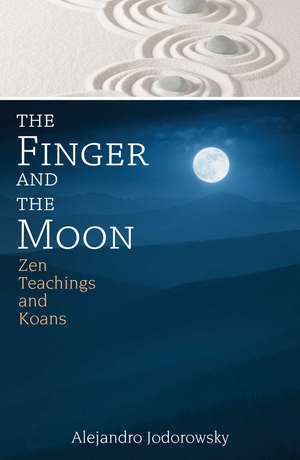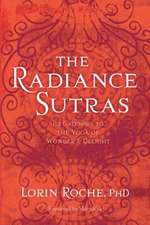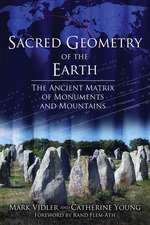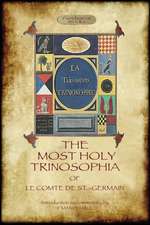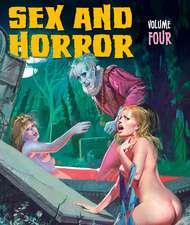The Finger and the Moon: Zen Teachings and Koans
Autor Alejandro Jodorowskyen Limba Engleză Paperback – 16 noi 2016
Jodorowsky notes that most people are incapable of self-realization because of their fear of the void within, an emptiness they seek to fill with noise and chatter. He shows that Zen teachings can be compared to a finger pointing at the moon, directing you to awaken to your true nature--the Buddha within. The danger lies in mistaking the pointing finger for the moon, mistaking the words for the essential enlightenment, which can only be grasped once words have been surpassed. Unlike most tales, these stories are intended to evoke silent illumination--as true awakening and self-realization cannot occur until the mind has been stilled.
Preț: 87.54 lei
Nou
Puncte Express: 131
Preț estimativ în valută:
16.76€ • 18.21$ • 14.08£
16.76€ • 18.21$ • 14.08£
Carte disponibilă
Livrare economică 31 martie-14 aprilie
Livrare express 15-21 martie pentru 18.40 lei
Preluare comenzi: 021 569.72.76
Specificații
ISBN-13: 9781620555354
ISBN-10: 1620555352
Pagini: 176
Dimensiuni: 137 x 210 x 13 mm
Greutate: 0.2 kg
Editura: Inner Traditions/Bear & Company
Colecția Inner Traditions
ISBN-10: 1620555352
Pagini: 176
Dimensiuni: 137 x 210 x 13 mm
Greutate: 0.2 kg
Editura: Inner Traditions/Bear & Company
Colecția Inner Traditions
Notă biografică
Alejandro Jodorowsky is a playwright, filmmaker, composer, mime, and psychotherapist. He has directed several films, including The Rainbow Thief and the legendary cult classics El Topo and The Holy Mountain. His most recent film, The Dance of Reality, debuted at the Cannes Film Festival in 2013 alongside a highly acclaimed documentary about his visionary film that never was, Jodorowsky’s Dune. He is the author of more than 20 books on spirituality and tarot, including Psychomagic, The Way of Tarot, Metagenealogy, and Sacred Trickery and the Way of Kindness, as well as more than 30 comic books and graphic novels. He lives in Paris.
Extras
PROLOGUE
During the late fifties, Zen master Yamada Mumon sent his disciple Ejo Takata from Japan to visit a North American zendo in San Francisco. Once there, Takata looked for a place to start a Zen Rinzai school. His method of looking for it--he spoke only Japanese--consisted in not looking for it. He stood still at the edge of the road and decided that he would get established wherever the first vehicle to pick him up left him. It was a truck that carried oranges that left him in Mexico City. He found himself there, with no more clothes than his koromo, and with ten dollars in his pocket. In that immense city he wandered through the streets until a psychoanalyst stopped his car and invited him in. He was surprised--or more precisely, astonished--to see a Japanese man calmly wandering around the streets of Mexico City. The psychoanalyst considered Ejo Takata’s arrival as a major event in the development of his own school; and with a group of physicians and other psychoanalysts, he had the man who would eventually become my master installed in a zendo in the outskirts of the capital.
ZEN AND JAPANESE STORIES
Crossing the River
A Zen master used to say: “When some people have to cross the river on a raft, they begin their passage, but soon after they lose sight of their goals. They stay at the raft: it has become their end.”
People learn to read the tarot thinking that the goal is to learn to read it. The tarot is the raft: the goal, happiness.
Others think that the goal is making money. The goal is happiness. We have to make money with something we truly love, something we love with passion. We could say that we should do things that give us intense pleasure, so much that we would do them for free.
Money is a divine energy. That said, in our society it is considered the worst thing there is. And yet we’re bound to use it to get by, to earn it, and to spend it. Why feel guilty when you earn a lot? It’s not hard for me to imagine Christ blessing the world with a five-hundred-dollar bill in his hand.
Hell and Paradise
A samurai asked a master to explain to him the difference between heaven and hell. Without responding, the master started to confer a great amount of insults at him. The samurai furiously drew his sable [weapon] to behead him.
“There you have hell,” said the master before the samurai could execute the action. Impressed by these words, the warrior instantly calmed down and sheathed his sable.
As he did this last gesture, the master added: “There you have heaven.”
We create our own hell when we enter certain states of mind; we create our own paradise entering other states of mind. Hell and paradise depend on us.
KOANS
In koans, master and disciple are usually together. I can imagine the master completely calm and relaxed, and the disciple tense and nervous. If the guru is nervous and controls himself, it means that he’s not a real master. He’s a disciple. On the other hand, if he scratches his butt, he’s a master. When the normal and ordinary man learns, he becomes a wise man, and when a wise man learns, he becomes a normal and ordinary man.
Burst Out!
“Master, I am afraid of dying. Can you help me solve that problem?”
“Yes, I can.”
“Tell me what to do!”
“Burst out!
Die so that you won’t die! Annihilate your ego, your individual I! Only the death of the individual exists. Neither the Totality nor Life ever ends. To be eternal, burst out your ego.
At night, especially at that moment when I can’t fall asleep, I practice an exercise. I say: “From now on, I will stop thinking.”
I relax and after a while my thinking gets dissolved. So I add: “And now? Now, I surrender to nothingness. I am nothing.”
I surrender to the nothingness for a while. And I think: “I am very happy. I’ve achieved it. . . . If you are happy, it means you’re not in the nothingness. . . .”
I get into this idea but I end up telling myself: “Don’t be sad either! Abandon yourself to the situation! Enter into the nothingness! Accept it!”
After a few seconds, I sleep profoundly. It seems as though we fall asleep at the moment we accept nothingness because the intellect disappears. When you annihilate the intellect, you sleep: you enter into the Universe.
Enlightenment
A master tells his disciple: “No one has ever achieved enlightenment,”
No one has ever achieved enlightenment simply because we are all enlightened. Enlightenment is not something to be achieved. Everything is enlightened. We work and work to achieve it, but it’s not achievable, one is enlightened. That is enlightenment. Everybody is perfect; the problem is that no one realizes it.
HAIKUS
To take her, what a pity!
To leave her, what a pity!
Oh, this lily!
I must forgo my wish to keep my life and my idea not to keep it. It’s the lily that matters, not my wish to use it. We must live in this world without wishing to use it, being happy with yourself just like the lily, the humble lily.
The kitten
weighed at the scale
keeps playing.
The kitten remains the same, whether we weigh him or not. He doesn’t care if he’s good, bad, fat, or slim. He keeps on playing! As we say: “As long as I’m warm let people laugh.” Why would I care if people laugh at me if I’m warm and cozy?” We want to be accepted by others. We live for them, perpetually changing ourselves, but in fact if we feel good with ourselves, everything works!
During the late fifties, Zen master Yamada Mumon sent his disciple Ejo Takata from Japan to visit a North American zendo in San Francisco. Once there, Takata looked for a place to start a Zen Rinzai school. His method of looking for it--he spoke only Japanese--consisted in not looking for it. He stood still at the edge of the road and decided that he would get established wherever the first vehicle to pick him up left him. It was a truck that carried oranges that left him in Mexico City. He found himself there, with no more clothes than his koromo, and with ten dollars in his pocket. In that immense city he wandered through the streets until a psychoanalyst stopped his car and invited him in. He was surprised--or more precisely, astonished--to see a Japanese man calmly wandering around the streets of Mexico City. The psychoanalyst considered Ejo Takata’s arrival as a major event in the development of his own school; and with a group of physicians and other psychoanalysts, he had the man who would eventually become my master installed in a zendo in the outskirts of the capital.
ZEN AND JAPANESE STORIES
Crossing the River
A Zen master used to say: “When some people have to cross the river on a raft, they begin their passage, but soon after they lose sight of their goals. They stay at the raft: it has become their end.”
People learn to read the tarot thinking that the goal is to learn to read it. The tarot is the raft: the goal, happiness.
Others think that the goal is making money. The goal is happiness. We have to make money with something we truly love, something we love with passion. We could say that we should do things that give us intense pleasure, so much that we would do them for free.
Money is a divine energy. That said, in our society it is considered the worst thing there is. And yet we’re bound to use it to get by, to earn it, and to spend it. Why feel guilty when you earn a lot? It’s not hard for me to imagine Christ blessing the world with a five-hundred-dollar bill in his hand.
Hell and Paradise
A samurai asked a master to explain to him the difference between heaven and hell. Without responding, the master started to confer a great amount of insults at him. The samurai furiously drew his sable [weapon] to behead him.
“There you have hell,” said the master before the samurai could execute the action. Impressed by these words, the warrior instantly calmed down and sheathed his sable.
As he did this last gesture, the master added: “There you have heaven.”
We create our own hell when we enter certain states of mind; we create our own paradise entering other states of mind. Hell and paradise depend on us.
KOANS
In koans, master and disciple are usually together. I can imagine the master completely calm and relaxed, and the disciple tense and nervous. If the guru is nervous and controls himself, it means that he’s not a real master. He’s a disciple. On the other hand, if he scratches his butt, he’s a master. When the normal and ordinary man learns, he becomes a wise man, and when a wise man learns, he becomes a normal and ordinary man.
Burst Out!
“Master, I am afraid of dying. Can you help me solve that problem?”
“Yes, I can.”
“Tell me what to do!”
“Burst out!
Die so that you won’t die! Annihilate your ego, your individual I! Only the death of the individual exists. Neither the Totality nor Life ever ends. To be eternal, burst out your ego.
At night, especially at that moment when I can’t fall asleep, I practice an exercise. I say: “From now on, I will stop thinking.”
I relax and after a while my thinking gets dissolved. So I add: “And now? Now, I surrender to nothingness. I am nothing.”
I surrender to the nothingness for a while. And I think: “I am very happy. I’ve achieved it. . . . If you are happy, it means you’re not in the nothingness. . . .”
I get into this idea but I end up telling myself: “Don’t be sad either! Abandon yourself to the situation! Enter into the nothingness! Accept it!”
After a few seconds, I sleep profoundly. It seems as though we fall asleep at the moment we accept nothingness because the intellect disappears. When you annihilate the intellect, you sleep: you enter into the Universe.
Enlightenment
A master tells his disciple: “No one has ever achieved enlightenment,”
No one has ever achieved enlightenment simply because we are all enlightened. Enlightenment is not something to be achieved. Everything is enlightened. We work and work to achieve it, but it’s not achievable, one is enlightened. That is enlightenment. Everybody is perfect; the problem is that no one realizes it.
HAIKUS
To take her, what a pity!
To leave her, what a pity!
Oh, this lily!
I must forgo my wish to keep my life and my idea not to keep it. It’s the lily that matters, not my wish to use it. We must live in this world without wishing to use it, being happy with yourself just like the lily, the humble lily.
The kitten
weighed at the scale
keeps playing.
The kitten remains the same, whether we weigh him or not. He doesn’t care if he’s good, bad, fat, or slim. He keeps on playing! As we say: “As long as I’m warm let people laugh.” Why would I care if people laugh at me if I’m warm and cozy?” We want to be accepted by others. We live for them, perpetually changing ourselves, but in fact if we feel good with ourselves, everything works!
Cuprins
PROLOGUE
Experience with Ejo Takata (Mexico, 1961)
The Essential Sound of Emptiness
ZEN AND JAPANESE STORIES
Swallowing the Serpent
The Two Cat Doors
The Fool and the Theologian
Crossing the River
Eyes Wide Open
The Monks and the Rabbits
Miracle and Faith
The Zen Garden
Attention
Ignorance and Enlightenment
The Interview
Hell and Paradise
Pay Attention
An Impassive Old Man
The Test of the Jar
The Head of the Dog
The Learning Process
KOANS
Regarding Koan Masters and Disciples
The Wooden Buddha in the Temple Fire
Water
What Is Buddha?
Back to the World
Infinity
Is Buddha in the Dog?
Seizing the Sky
The Master’s Bones
The Master’s Death
Two Monks and a Nightingale
The White Stone
The Heart of the Tree
The Visit of Master Tanka
Mokugen’s Smile
Submit!
Open Hand, Closed Hand
Cutting Off Buddha’s Neck
A Million Things
The One-Pound Shirt
Break the Shape
Where Are You?
Becoming One with the Path
The Dog’s Nature
Nansen’s Arrow
Joshu and the Birds
The Monk, the Bridge, and the River
The Spirit at the Center
Falling into the Well
The Sleeping Attendant
Constant Inconstancy
The Thousand Hands of the Buddha of Compassion
The Master’s Heart
Ten Thousand
Stronger than Buddha
Interior and Exterior
The Best Piece of Meat
The Three Worlds
What Has Become of the Old Masters?
A Definition of Zen
Facing Disaster
Tchao-Tcheu Tests an Old Woman
The Mocking Gloss of Wu-Men
Arakuine’s Tears
Enlightenment
The Candle
The Master’s Gratitude
HAIKUS
GLOSSARY
INDEX
Experience with Ejo Takata (Mexico, 1961)
The Essential Sound of Emptiness
ZEN AND JAPANESE STORIES
Swallowing the Serpent
The Two Cat Doors
The Fool and the Theologian
Crossing the River
Eyes Wide Open
The Monks and the Rabbits
Miracle and Faith
The Zen Garden
Attention
Ignorance and Enlightenment
The Interview
Hell and Paradise
Pay Attention
An Impassive Old Man
The Test of the Jar
The Head of the Dog
The Learning Process
KOANS
Regarding Koan Masters and Disciples
The Wooden Buddha in the Temple Fire
Water
What Is Buddha?
Back to the World
Infinity
Is Buddha in the Dog?
Seizing the Sky
The Master’s Bones
The Master’s Death
Two Monks and a Nightingale
The White Stone
The Heart of the Tree
The Visit of Master Tanka
Mokugen’s Smile
Submit!
Open Hand, Closed Hand
Cutting Off Buddha’s Neck
A Million Things
The One-Pound Shirt
Break the Shape
Where Are You?
Becoming One with the Path
The Dog’s Nature
Nansen’s Arrow
Joshu and the Birds
The Monk, the Bridge, and the River
The Spirit at the Center
Falling into the Well
The Sleeping Attendant
Constant Inconstancy
The Thousand Hands of the Buddha of Compassion
The Master’s Heart
Ten Thousand
Stronger than Buddha
Interior and Exterior
The Best Piece of Meat
The Three Worlds
What Has Become of the Old Masters?
A Definition of Zen
Facing Disaster
Tchao-Tcheu Tests an Old Woman
The Mocking Gloss of Wu-Men
Arakuine’s Tears
Enlightenment
The Candle
The Master’s Gratitude
HAIKUS
GLOSSARY
INDEX
Recenzii
“No one alive today, anywhere, has been able to demonstrate the sheer possibilities of artistic invention--and in so many disciplines--as powerfully as Alejandro Jodorowsky.”
“Alejandro Jodorowsky is a demiurge and an interpreter of our stories, always exploring further the understanding of both the beauty and complexity revealed by humankind.”
“Jodorowsky is a brilliant, wise, gentle, and cunning wizard with tremendous depth of imagination and crystalline insight into the human condition.”
“Alejandro Jodorowsky seamlessly and effortlessly weaves together the worlds of art, the confined social structure, and things we can only touch with an open heart and mind.”
“One of the most inspiring artists of our time. . . . A prophet of creativity.”
“The Dance of Reality begs to be read as a culminating work. . . .”
“The Dance of Reality [film] is a trippy but big-hearted reimagining of the young Alejandro’s unhappy childhood in a Chilean town. . . .”
“Manual of Psychomagic is great . . . like a cookbook of very useful recipes that can help us to understand our life and the universe we live in.”
“His films El Topo and The Holy Mountain were trippy, perverse, and blasphemous.”
“The best movie director ever!”
“Alejandro Jodorowsky is a demiurge and an interpreter of our stories, always exploring further the understanding of both the beauty and complexity revealed by humankind.”
“Jodorowsky is a brilliant, wise, gentle, and cunning wizard with tremendous depth of imagination and crystalline insight into the human condition.”
“Alejandro Jodorowsky seamlessly and effortlessly weaves together the worlds of art, the confined social structure, and things we can only touch with an open heart and mind.”
“One of the most inspiring artists of our time. . . . A prophet of creativity.”
“The Dance of Reality begs to be read as a culminating work. . . .”
“The Dance of Reality [film] is a trippy but big-hearted reimagining of the young Alejandro’s unhappy childhood in a Chilean town. . . .”
“Manual of Psychomagic is great . . . like a cookbook of very useful recipes that can help us to understand our life and the universe we live in.”
“His films El Topo and The Holy Mountain were trippy, perverse, and blasphemous.”
“The best movie director ever!”
Descriere
Jodo’s interpretations of the stories and koans of Zen master Ejo Takata
